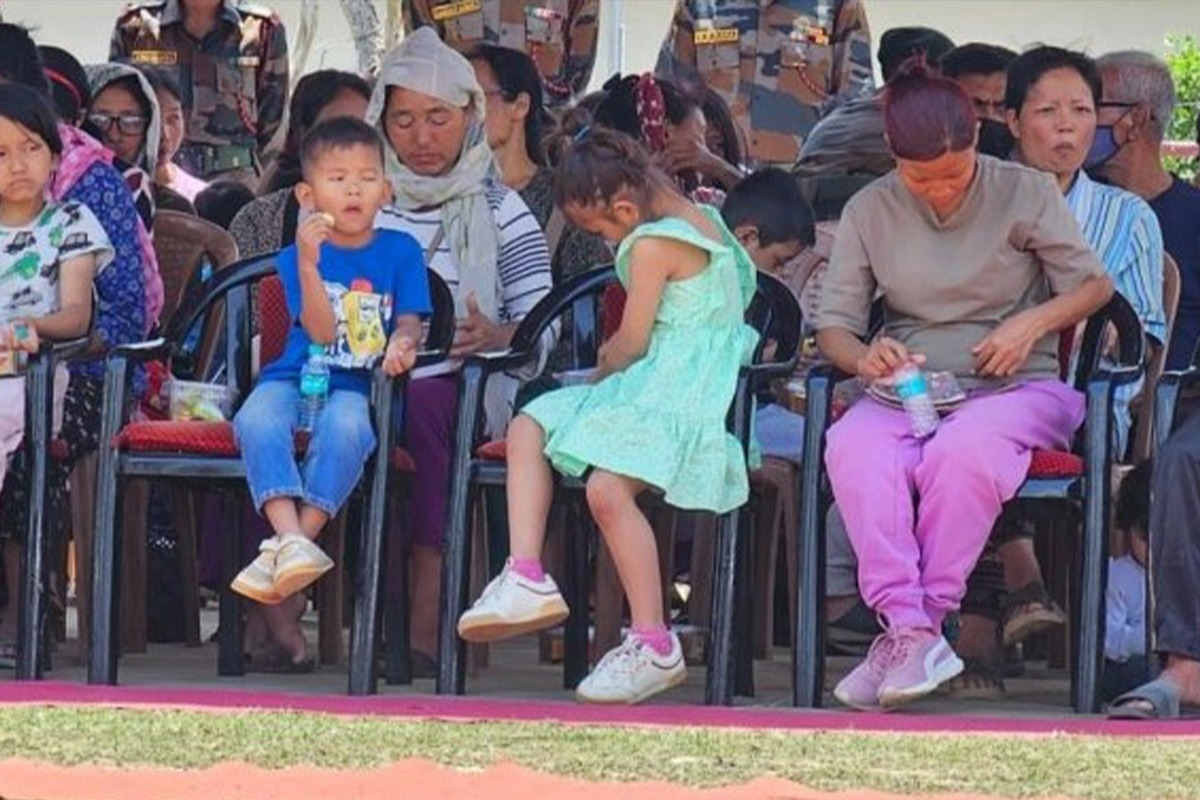BISHNUPUR, MANIPUR: Tears of anguish and desperation have become a part of daily life for thousands of children of Manipur who now call 300-odd relief camps their temporary home.
In Kumbi – nearly 55 kms from capital Imphal, a young girl’s trembling voice echoes the collective pain of Manipuris: “We were brutally chased out of our homes. We lost our homes and our future and everything else.”
Since early May, around 60,000 people have been living under the ominous cloud of ethnic conflict and with the unforgiving embrace of these relief camps.
The New Indian team ventured into this world of broken dreams, focusing on one camp in Kumbi, Bishnupur district. A question which lingers in the minds of 11 girls, 15 boys, 80 men, and 96 women of this relief camp: “When will we go back, and life return to normal?”
“It is not just our house; it’s where we grew up, where our laughter and memories echoed. Ever since May 3, we haven’t slept properly, and we are drained, not just physically, but emotionally too,” laments a college student, her voice trembling with the weight of her shattered dreams.
READ MORE: Caste census across India gets nod from CWC post elections
School-going children put in these camps after their beloved homes succumbed to mob anger say they don’t see any future for them. “We pray to the government to listen to our cries. Sometimes, I feel I have had enough, and feel like giving up.”
Education has dimmed to a flicker in the harsh reality of these camps. A young woman speaks of the torment she and her fellow inmates endure. “I dreamt of being a cabin crew member. But ever since I’ve been in this relief camp, my dreams have crumbled. I see no future, and there are countless untold stories like mine. The pain is beyond words,” she says.
While the government and civil society organizations have offered a lifeline of supplies, social media campaigns have also rallied support for those trapped in these camps. Each camp houses an average of 200 displaced people.
For women dwellers, the prolonged stay combined with violence has had profound long-lasting adverse health effects – both physical and mental.
READ MORE: Housing, development budget shot up by over 90% under Modi: Puri
Dr Leima Chanu Shakti Yambem, a compassionate gynecologist who has witnessed their plight first hand, offers a glimpse of their silent suffering.
“As a gynecologist and as a human, I’ve noticed that many are grappling with changes in their menstrual cycles due to stress and the lack of proper hygiene.”
“And on an emotional level, it’s gut-wrenching to witness dreams shattered, young lives devoid of hope, and mothers holding their babies, wondering if they can survive the harsh winter. The long-term scars of trauma will continue to haunt their mental and physical well-being,” she warns.
Watch:









